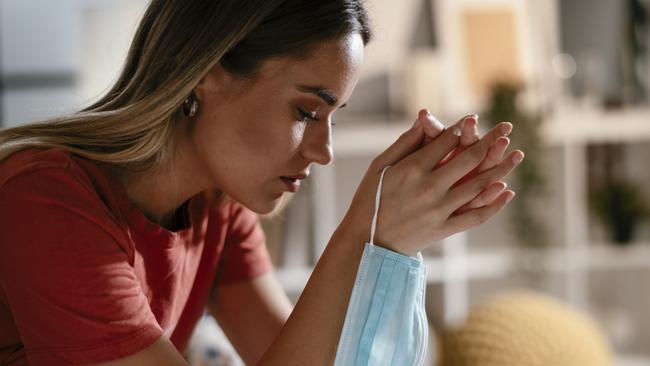Emily Olle: It’s not just the reduction in peak-pandemic hygiene measures that’s making us more unwell
My recent medical rap sheet sounds like that of a Victorian-era child. It hasn’t always been like this, writes Emily Olle. Did you get sick more after Covid too?
Opinion
Don't miss out on the headlines from Opinion. Followed categories will be added to My News.
Until now, I could count on one hand the number of times I’d been unwell in the past five years.
With one sick day taken across two workplaces and most other illnesses explained by travel or leftovers pushed a little too far, I had started to believe my dirt-eating childhood had given me the Nokia 3310 of immune systems.
My bout of Covid was on March 30 (I know the exact date, because I missed both the Crows’ once in a decade Showdown buzzer-beater and historic fourth AFLW preliminary final win. I’m fine with it. I swear.)
Since then, my body appears to have thrown in the towel.
My recent medical rap sheet sounds like that of a Victorian-era child – shingles, an eye infection, three bouts of the common cold and, currently, a throat and lung issue that has left me sounding like Danny DeVito if he took up social smoking.
Every single time I’ve fronted up for a gold-standard PCR and, every time, nada on the Covid front – just your run-of-the-mill sickness.
I’m not alone. Friends, colleagues and family have been dropping like flies at the mercy of everyday illnesses.
If you feel the same, scientists suggest it’s likely you’re not imagining it.
Part of this comes down to the fact that many of us are “back in the world” after two years of hand washing, mask-wearing and isolation, alongside the regular winter onslaught of cold and flu viruses.
But research suggests that it’s not just the reduction in peak-pandemic hygiene measures that’s making us more unwell.

A 2021 study from a cohort of researchers from Flinders University, the Royal Adelaide Hospital and the University of Adelaide has suggested that even mild Covid can have a long-lasting effect on your immune system.
Of 69 people who had contracted Covid-19, 50 of which had mild symptoms, scientists found the immune system of participants was “significantly altered” for up to six months after becoming infected.
Researchers said the data suggested those recovering from infection could have weakened responses to other illnesses or have chronic conditions exacerbated.
The study also found “strong dysregulation of gene expression” particularly with regard to inflammation – which, in layman’s terms, means the way people’s bodies responded to an invading virus was affected long-term.
Flinders University’s Professor David Lynn, one of the researchers involved in the study, said one could “logically infer” that dysregulation was linked to long Covid.
It is estimated between 10 and 30 per cent of Australians who get Covid-19 could develop long Covid which, according to the World Health Organisation (WHO), is generally diagnosed three months after contracting the virus.
According to WHO, long Covid includes symptoms like increased fatigue, debilitating fatigue, shortness of breath, cough, chest pain and joint pain.
New research from the University of Birmingham has also suggested less well-known side effects such as hair loss, loss of libido and hallucinations.
So real is the risk of long Covid that the state government announced in May it would open four, dedicated clinics to provide high-level care for sufferers.
I’m incredibly grateful to be triple-vaccinated (although desperate for one more hit of the good stuff once eligible) and, as my body fights in the trenches of illness, will continue to wear my mask in public – just like our health chief.
But there’s still so much we don’t know about this virus and what its long-term effect on our health will be.
Long gone should be the belief that, if you’re young and healthy, you can pick up the spicy cough, get four weeks’ immunity and be on your merry way.
As two new strains push our health system to the brink and send cases soaring once more, the collective battering of our immune systems should remind us that this is far from over.





